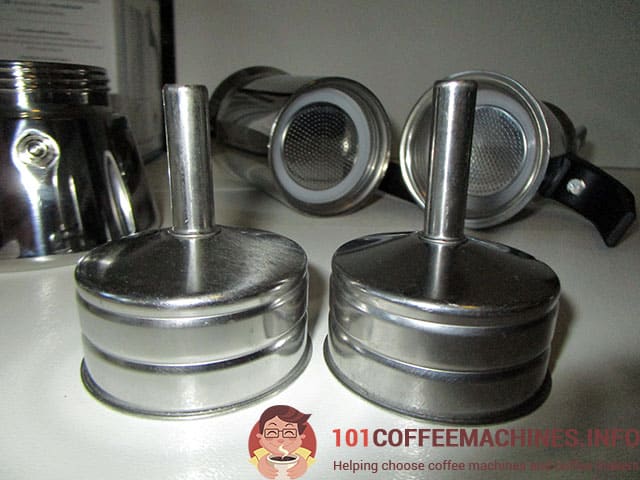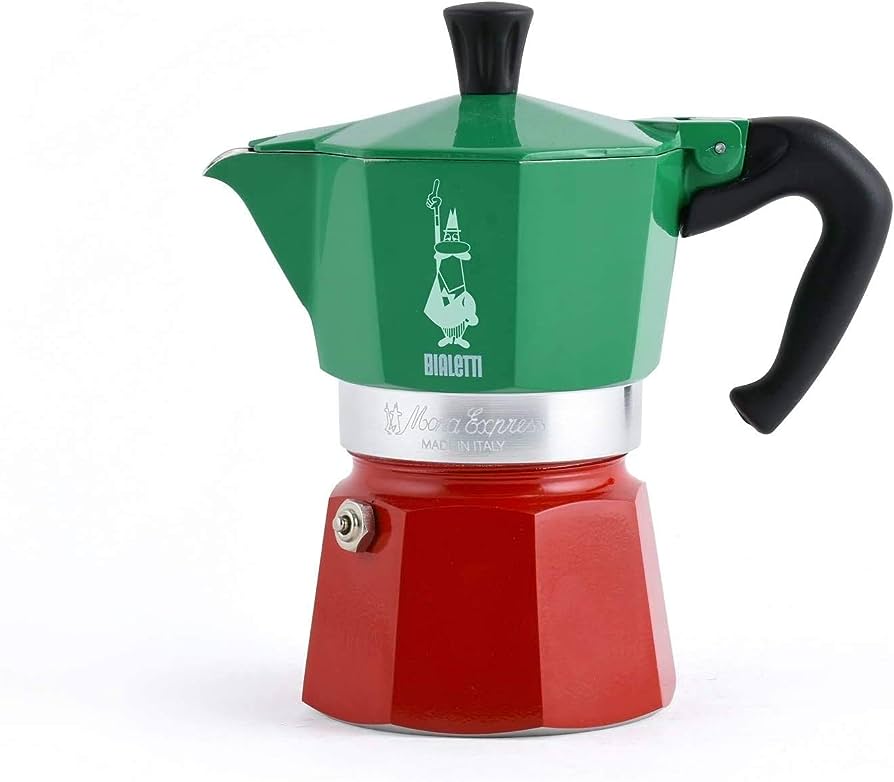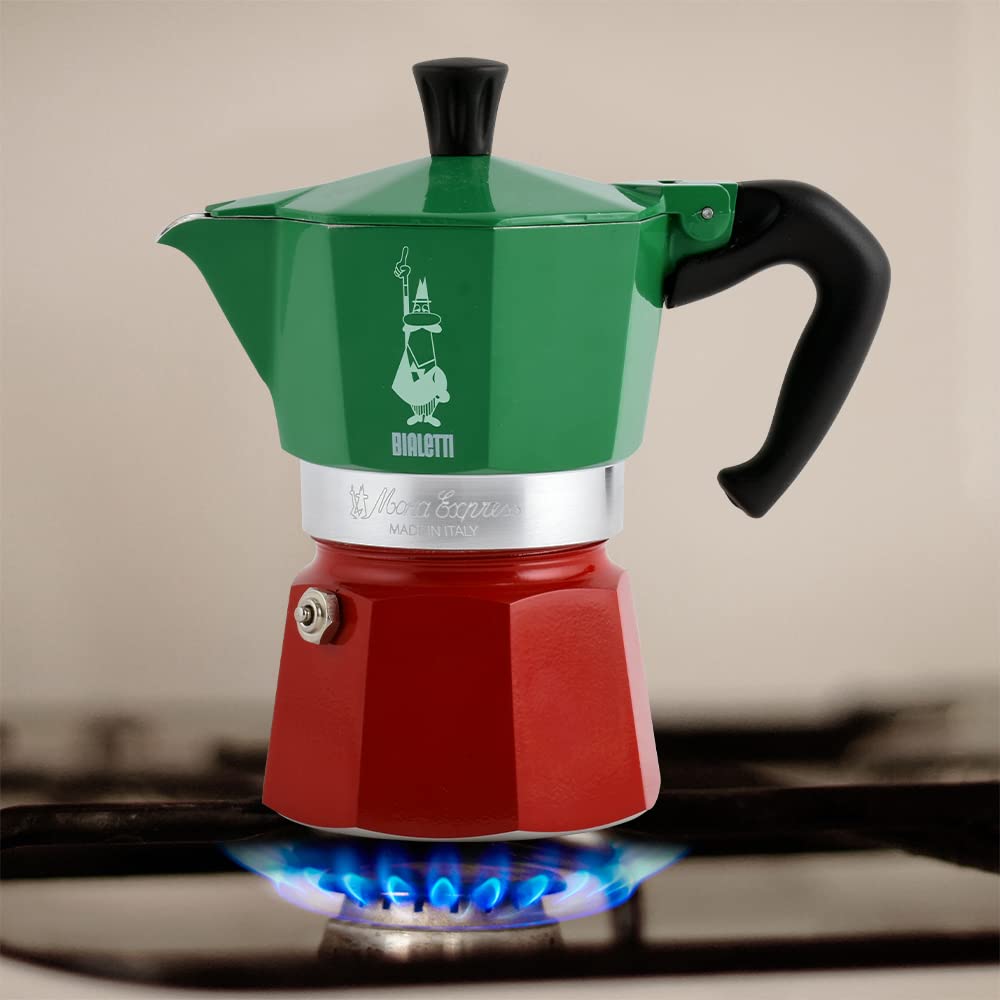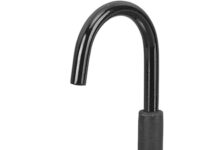Let’s clear up the mystery surrounding the origins of Bialetti. We’ve all seen those iconic stovetop coffee makers with distinctive designs, but where are they made?
It’s time to unravel the truth behind the production of Bialetti – is it proudly crafted in Italy or manufactured in China?
Brace yourselves, coffee enthusiasts, as we journey into the heart of the Bialetti debate and uncover the real story behind this beloved Italian brand.
The Origins of Bialetti
Introduction to Bialetti
Bialetti is a renowned coffee maker brand that has gained popularity worldwide. The company was founded in 1919 by Alfonso Bialetti in Italy, and it has since become synonymous with the iconic Moka pot. Bialetti revolutionized how coffee is brewed in households, making it a household name during the mid-20th century. The distinctive octagonal shape of the Moka pot became a symbol of Italian coffee culture and craftsmanship.
The Italian Heritage of Bialetti
Bialetti is deeply rooted in Italian heritage and craftsmanship. Alfonso Bialetti’s vision was to create a coffee maker representing the rich Italian coffee-making tradition. Combining engineering expertise with a passion for coffee, Bialetti introduced the Moka pot, which would become an integral part of Italian culture.
The Moka pot gained widespread popularity for its simplicity and efficiency in producing a solid and flavorful cup of coffee. Bialetti’s commitment to Italian craftsmanship was evident in every detail of their products. The Moka pot was made using high-quality materials, and each pot was meticulously handcrafted to ensure the finest quality.
Expansion to China
As Bialetti’s popularity grew, the company began exploring expansion opportunities. Bialetti strategically expanded its manufacturing operations to China in line with the increasing product demand. This move allowed them to reach a larger market and increase production capacity to meet growing customer needs.
The Made In Italy Label
The Importance of the Made in Italy Label
The “Made in Italy” label carries significant importance for consumers worldwide. It has become synonymous with quality, craftsmanship, and excellence. The label represents a solid commitment to traditional manufacturing practices and high-quality materials.
Bialetti understands the value of the Made in Italy label and has strived to maintain its reputation as an Italian brand. While some aspects of their manufacturing process have shifted to China, Bialetti has made efforts to ensure that their products still reflect the essence of Italian craftsmanship.
Verification of Origin
To guarantee the authenticity of their products, Bialetti has implemented rigorous measures to verify the origin of their coffee makers. They prioritize transparency and provide detailed information to customers regarding the manufacturing process and the specific components used.
With the rise of counterfeits in the market, Bialetti has taken steps to protect its brand and reputation. They collaborate with international organizations and utilize advanced technology to track and authenticate their products, ensuring that customers can trust the Made in Italy label.
Laws and Regulations
Italy has stringent laws and regulations in place to protect the integrity of the Made in Italy label. The Italian government has established specific criteria for products labeled “Made in Italy.” These criteria cover various aspects, including sourcing raw materials, manufacturing processes, and quality control standards.
Bialetti complies with these laws and regulations to maintain the authenticity of their products. They work closely with Italian authorities and undergo regular audits to ensure that their manufacturing processes align with the standards set by the Made in Italy label.
Bialetti’s Manufacturing Locations
Historical Manufacturing in Italy
For many years, Bialetti exclusively manufactured their coffee makers in Italy. The company took pride in the craftsmanship and attention to detail that went into each product. Skilled artisans meticulously assembled the Moka pots, ensuring that each one met the impeccable standards set by Bialetti.
The manufacturing process in Italy involved a combination of traditional techniques and modern technology. Bialetti’s commitment to Italian craftsmanship was evident, and their products quickly became synonymous with quality and reliability.
The Shift to China
As the demand for Bialetti products continued to rise, the company faced the challenge of meeting the increasing production requirements. Bialetti decided to establish manufacturing facilities in China to keep up with this demand.
The shift to China allowed Bialetti to take advantage of the country’s highly skilled workforce and cost-efficient manufacturing capabilities. It allowed them to scale their production to meet the needs of a global market while maintaining competitive pricing.
Factors Influencing the Relocation
Several factors influenced Bialetti’s decision to relocate some manufacturing operations to China. One of the primary reasons was the competitive labor cost in China compared to Italy. By moving production to China, Bialetti could reduce manufacturing expenses and offer its products at a more affordable price point.
Additionally, the availability of skilled labor and advanced manufacturing infrastructure in China made it an attractive location for Bialetti. Leveraging China’s expertise in mass production enabled Bialetti to streamline its manufacturing processes and achieve higher production volumes.
Quality Control and Customer Perception
Maintaining Quality Standards
Bialetti takes great pride in maintaining the quality standards associated with its brand for over a century. Even with the relocation of some manufacturing operations to China, Bialetti has implemented stringent quality control measures to ensure consistent product excellence.
A team of dedicated quality control professionals oversees every stage of the manufacturing process. From sourcing raw materials to final assembly, meticulous inspections ensure that every Bialetti product meets the highest quality standards.
Challenges and Controversies
The shift to manufacturing in China brought about specific challenges and controversies for Bialetti. Critics argue that the relocation has led to a decline in product quality due to differences in manufacturing practices and material sourcing.
Bialetti has addressed these concerns by implementing strict quality control protocols and partnering with reputable suppliers. By maintaining a close working relationship with their Chinese manufacturing facilities, Bialetti ensures that all products uphold the same level of quality their customers expect.
Impact on Customer Perception
The shift in manufacturing location has led to mixed customer perceptions. While some consumers remain loyal to the brand, appreciating the affordability and availability of Bialetti products, others have expressed concerns about a potential decline in quality.
Bialetti has invested resources in educating customers about their manufacturing practices and quality control efforts to mitigate these concerns. By being transparent about their processes and certifications, they aim to maintain customer trust and loyalty.
Comparison: Italian vs. Chinese Production
Workforce and Labor Costs
Italy and China’s workforce and labor costs differ significantly, influencing Bialetti’s decision to relocate manufacturing operations. Italy has a highly skilled workforce, but labor costs are comparatively higher. China, on the other hand, offers a large labor force at a lower cost.
Bialetti could take advantage of cost efficiencies by shifting production to China without compromising quality. The skilled labor force in China ensured that the intricate manufacturing processes of the Moka pots could be carried out with precision and expertise.
Production Processes and Techniques
Italy has a long-standing tradition of craftsmanship, and Bialetti’s manufacturing operations in Italy were deeply rooted in these traditional processes and techniques. Skilled artisans handcrafted each pot, ensuring meticulous attention to detail.
In China, Bialetti combined traditional craftsmanship and modern manufacturing techniques. Advanced machinery and automation were introduced to complement the expertise of the Chinese workforce, resulting in increased production efficiency.
Supplier Relationships
The shift to China also led to changes in Bialetti’s supplier relationships. While the company had established close ties with Italian suppliers, the relocation required forging new partnerships with Chinese suppliers. Bialetti carefully vetted and selected suppliers that met their strict quality control standards.
Maintaining strong supplier relationships ensures the availability of high-quality raw materials and components. Bialetti’s commitment to sourcing the best materials from trusted suppliers contributes to the overall quality of their products, regardless of the manufacturing location.
Economic Factors
Cost Efficiency in China
Cost efficiency was one of the primary economic factors that influenced Bialetti’s shift to China. Labor costs in China are significantly lower than in Italy, allowing Bialetti to achieve cost savings without compromising quality.
Additionally, the logistical advantages offered by China’s manufacturing infrastructure, such as efficient supply chains and access to raw materials, contribute to overall cost efficiency. These factors enable Bialetti to produce their coffee makers at a competitive price point.
Competitiveness of Italian Manufacturing
Italian manufacturing has traditionally been associated with premium quality and craftsmanship but at a higher cost. While cost considerations primarily drove Bialetti’s decision to shift some manufacturing operations to China, they still maintain a significant manufacturing presence in Italy.
Italian manufacturing continues to be highly competitive in certain aspects. Bialetti leverages Italian expertise and craftsmanship for the design and development of new products, as well as for manufacturing specific components. This ensures that the essence of Italian quality is infused into Bialetti’s coffee makers.
Ethical Considerations
Labor Conditions in China
Ethical considerations are crucial in the global manufacturing industry. Concerns about labor conditions in China have been raised, particularly regarding fair wages, working hours, and worker rights.
Bialetti is committed to upholding ethical practices in its supply chain. They carefully select manufacturing facilities in China based on their adherence to labor laws and standards. Regular audits and inspections ensure workers are treated fairly and provided with safe working conditions.
Bialetti’s Commitment to Ethical Practices
Bialetti has made it a priority to promote ethical practices throughout its manufacturing operations. They work closely with their Chinese manufacturing partners to ensure that labor standards are upheld, and social responsibilities are met.
In addition to labor conditions, Bialetti also emphasizes environmental sustainability. They implement eco-friendly manufacturing processes to minimize their environmental impact and actively seek suppliers who share their commitment to sustainability.
The Future of Bialetti’s Manufacturing
Recent Developments and Partnerships
Bialetti continues to evolve and adapt to the changing needs of the global market. In recent years, they have formed strategic partnerships with Chinese manufacturing companies, further strengthening their manufacturing capabilities in China.
These partnerships allow Bialetti to leverage the expertise and resources of their Chinese counterparts while maintaining the quality and authenticity of their products. The collaborations also facilitate innovation and the development of new coffee makers that cater to evolving consumer preferences.
Balancing Tradition and Globalization
As Bialetti expands its global footprint, it faces the challenge of balancing tradition with the demands of globalization. While the shift to China has allowed for increased production capacity and cost efficiencies, Bialetti remains committed to preserving the essence of Italian craftsmanship.
Bialetti continuously strives to strike a balance between its rich tradition and the benefits that globalization offers. They are dedicated to preserving the heritage and quality associated with the Made in Italy label while embracing new manufacturing methods and technologies.
Conclusion
Bialetti’s journey from its humble origins in Italy to its expansion in China is a testament to the brand’s commitment to innovation and meeting customer needs. Economic factors drove the company’s decision to shift manufacturing operations to China. Still, Bialetti remains devoted to its Italian heritage and the quality associated with the Made in Italy label.
Through stringent quality control measures, transparency, and ethical practices, Bialetti ensures that its products meet customers’ expectations. While customer perceptions may differ, Bialetti proactively addresses concerns and maintains customer trust.
By embracing their Italian roots and globalization, Bialetti is poised to navigate the future of manufacturing. The brand’s strategic partnerships and commitment to tradition will ensure the success and recognition of Bialetti’s iconic coffee makers worldwide.










































